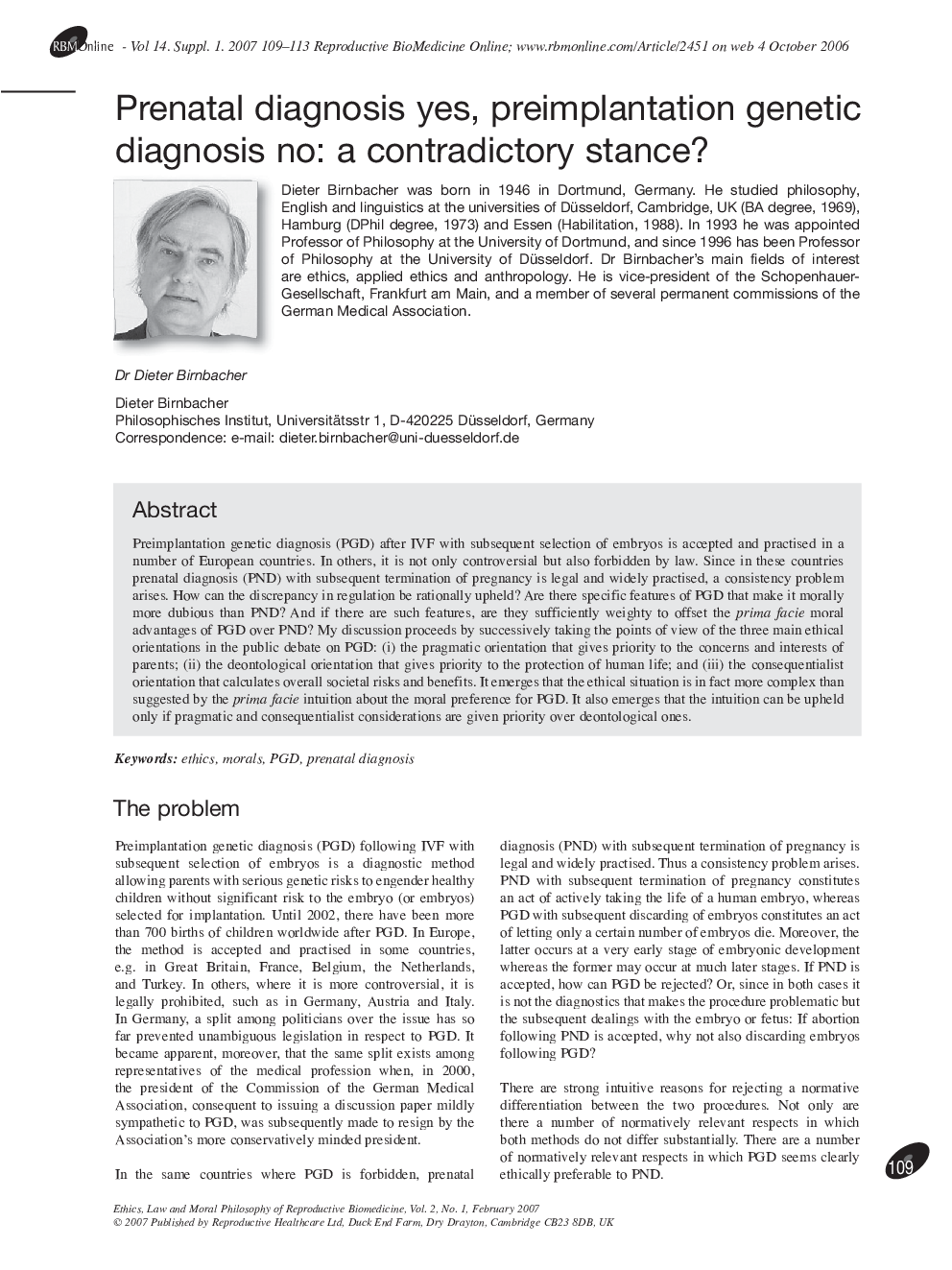| Article ID | Journal | Published Year | Pages | File Type |
|---|---|---|---|---|
| 3973495 | Reproductive BioMedicine Online | 2007 | 5 Pages |
Preimplantation genetic diagnosis (PGD) after IVF with subsequent selection of embryos is accepted and practised in a number of European countries. In others, it is not only controversial but also forbidden by law. Since in these countries prenatal diagnosis (PND) with subsequent termination of pregnancy is legal and widely practised, a consistency problem arises. How can the discrepancy in regulation be rationally upheld? Are there specific features of PGD that make it morally more dubious than PND? And if there are such features, are they sufficiently weighty to offset the prima facie moral advantages of PGD over PND? My discussion proceeds by successively taking the points of view of the three main ethical orientations in the public debate on PGD: (i) the pragmatic orientation that gives priority to the concerns and interests of parents; (ii) the deontological orientation that gives priority to the protection of human life; and (iii) the consequentialist orientation that calculates overall societal risks and benefits. It emerges that the ethical situation is in fact more complex than suggested by the prima facie intuition about the moral preference for PGD. It also emerges that the intuition can be upheld only if pragmatic and consequentialist considerations are given priority over deontological ones.
